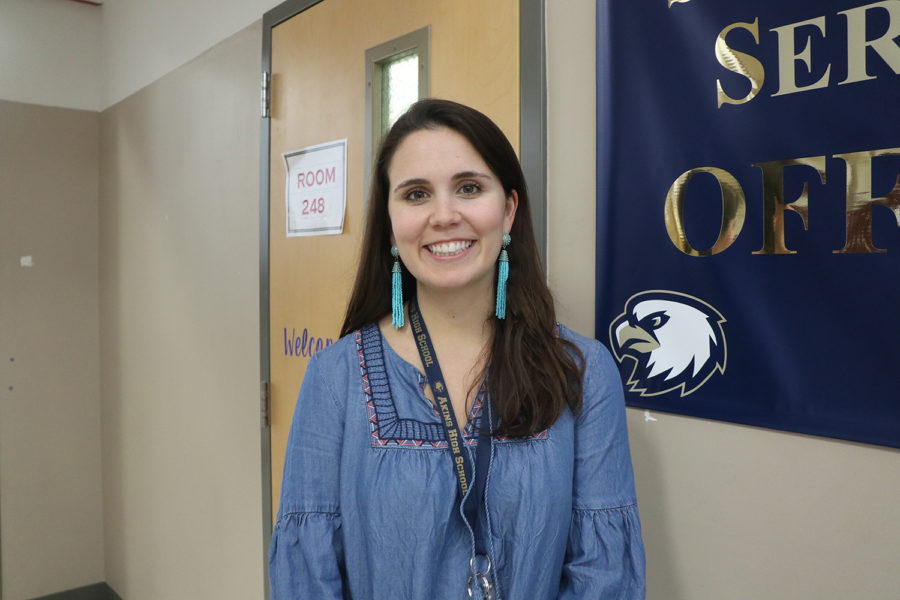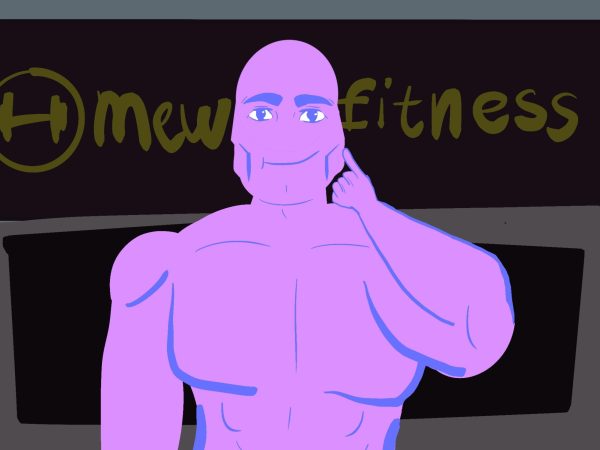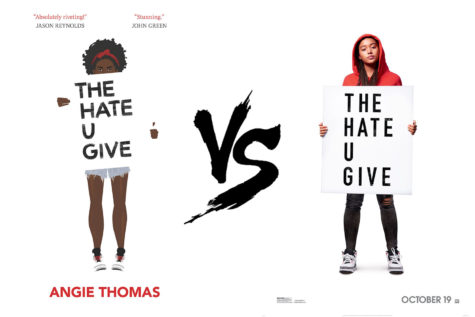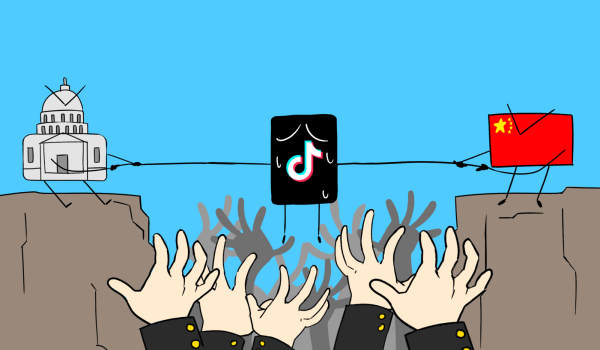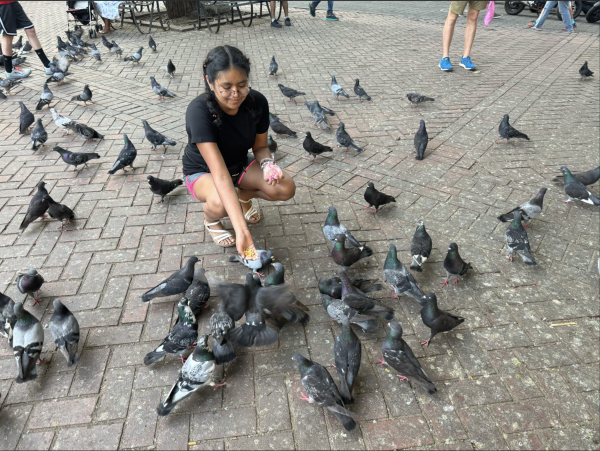Q&A: What do healthy relationships look like in adolescence?
Meg Scamardo, Student Support Services counselor, shares advice about healthy relationships.
March 14, 2019
Teenage relationships are often undermined, considered to be a “not real relationship.”
This isn’t always the case. Most failed relationships end because either partner lacks the life experience to deal with complex emotions, it is very important for a teenager to be able to have a healthy, stable relationship with their partner. Most teens don’t realize when they’re being manipulated, cheated, or strung along, and this is because teens simply lack experience.
The Eagle’s Eye conducted an interview with Student Support Services social worker Meg Scamardo about the warning signs of an unhealthy relationship.
What are some characteristics of a healthy romantic relationship?
Respectful is the first word that comes to my mind. Relationships where you’re allowed to be yourself, have your own friends and have your own life. I think healthy relationships are full of love, affection, and communication. Boundaries are important, but I think the most important part is feeling like you don’t have to be someone else for another person.
What are some characteristics of an unhealthy romantic relationship?
What we see in unhealthy relationships is usually one person trying to control other aspects of people’s life. What we do know about unhealthy relationships is that it can start with really small things like saying that they want you to dress a certain way or not talk to certain people. Unhealthy relationships are a lot about power and control, and a lot of times partners who are abusive are partners who just don’t know how to be healthy in a relationship. They will just start to find ways to exert their power and control.
What are some strategies of getting out of a toxic relationship?
I think the most important part of getting out of a toxic relationship is just honoring yourself that you have done everything you know how to do and that you were strong and you were a survivor. There just has to be a certain degree of self-love and self-respect, and sometimes that’s something that can be missing from people who are living unhealthy relationships. Getting out of unhealthy relationships requires some kind of help, so whether that’s just talking to a friend, or a parent, or a trusted adult about how something about this relationship doesn’t feel safe and good. Someone who’s truly scared for their physical safety must know it’s important to get help.
How does one cope with the aftermath of escaping an abusive relationship?
Unfortunately, what we know about unhealthy relationships is we don’t always remember every single thing that was unhealthy, we remember a lot of really good times and really good memories, so it can be hard to leave that behind. There is grief that comes along with leaving an abusive relationship, just as if you were grieving the death of a loved one. There are stages that you go through, anger, to denial, to depressed, to bargaining, and you know eventually we hope that you’ll be able to find acceptance, but it does take a very long time.
Why are some teenage relationships difficult to maintain?
I think teenage relationships can be difficult to maintain because we don’t understand a lot of things that go into a relationship. So for example, we don’t understand the importance of healthy boundaries. I don’t mean maturity level, but just that we haven’t had the life experience yet. We don’t recognize these warning signs and red flags, and before you know it, we’re in a really dangerous situation. We don’t recognize the importance of having our own identity and having our own life and knowing what we want. Not just what someone else is telling us to want.
How does one cope with the aftermath of escaping an abusive relationship?
A big part of coping and a big part of healing for survivors is just again, practicing self-love, practicing self-care, and practicing self-compassion. And with any kind of trauma or anything that has a serious impact on our heart, just tell yourself that it will take time. Unfortunately what we know about unhealthy relationships is we don’t always remember every single thing that was unhealthy, Sometimes we remember a lot of really good times and really good memories, so it can be hard to leave that behind.
Do you have any tips for helping teens to keep their relationships positive?
I have a lot of tips. I think first educating yourself about relationships and talking to other people about what you think is a healthy relationship and what it should look like. A big part of teen relationships is not losing sight of ourselves, a lot of time in teenage relationships we kind of get caught up in this other person who makes us feel a way we’ve always wanted to feel. Which is beautiful and almost everyone has a desire to have a connection with someone. I think it’s important especially in high school and especially as teenagers that we are always doing a lot of self-care and that we’re always focusing on self-love.


